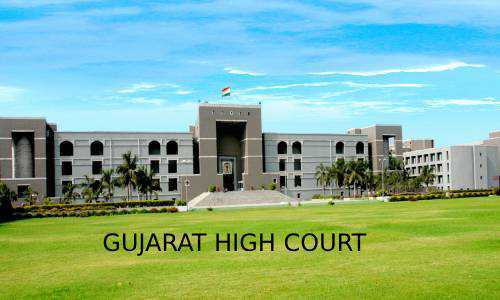
Case Title: M/S. Mahee Cotex V. Central Bank of India (Authorised Officer)
In response to a petition appealing a decision of the Debt Recovery Tribunal that denied the petitioner's request for postponement of the hearing out of concern about losing control of property, the Gujarat High Court declined to exercise its writ jurisdiction under Article 226.
The Court must avoid using its writ authority in such cases since the remedies provided to a harmed party under the SARFAESI Act are both quick and efficient, according to Justice Vaibhavi D. Nanavati.
"It is open for the writ petitioners to avail the statutory alternative remedy available under the Act...This Court is not inclined to exercise the powers under Article 226 of the Constitution of India."
In the petition, it was requested that the DRT be instructed to consider the petitioner's case quickly and to halt the enforcement and execution of the contested notice that the Mamlatdar had issued in order to evict the petitioner. The Petitioners asked that the Mamlatdar's impugned ruling be revoked since it would force the Petitioner to vacate the residential property. The Petitioners had requested a postponement of the hearing through the Respondent authority, but the Authority saw no reason to act quickly. On the 16th of September 2022, a hearing on the case was arranged.
The Respondent, on the other hand, cited the Tribunal's ruling declining temporary remedy for the subject property. The borrower is obligated to return the loan in full and in precise conformity with the conditions of the contract, as mentioned. Furthermore, a stay imposed on the Respondent Bank for starting the recovery process would prevent it from paying down its constitutional duties.
After hearing these arguments, Justice Nanavati concluded that the Petitioners had accepted the Tribunal's decision to deny interim relief since it had not been contested. Consequently, the problem was no longer a "res integra." As a result, the Petitioners should have appealed to DRAT.
In order to remind, United Bank of India v. Satyawati Tondon and Ors was mentioned:-
"Both, the Tribunal and the Appellate Tribunal are empowered to pass interim orders under Sections 17 and 18 and are required to decide the matters within a fixed time schedule. It is thus evident that the remedies available to an aggrieved person under the SARFAESI Act are both expeditious and effective."
The Supreme Court issued the following advice in the same case:
"It is a matter of serious concern that despite repeated pronouncements of this Court, the High Courts continue to ignore the availability of statutory remedies under the DRT Act and SARFAESI Act and exercise jurisdiction under Article 226 for passing orders which have a serious adverse impact on the right of banks and other financial institutions to recover their dues."
Additionally, the High Court noted in Phoenix ARC Private Limited vs. Vishwa Bharati Vidya Mandir & Ors:
"Even otherwise, it is required to be noted that a writ petition against the private financial institution – ARC – appellant herein under Article 226 of the Constitution of India against the proposed action/actions under Section 13(4) of the SARFAESI Act can be said to be not maintainable."
In light of this, the petition was denied with the possibility of using other statutory remedy.

